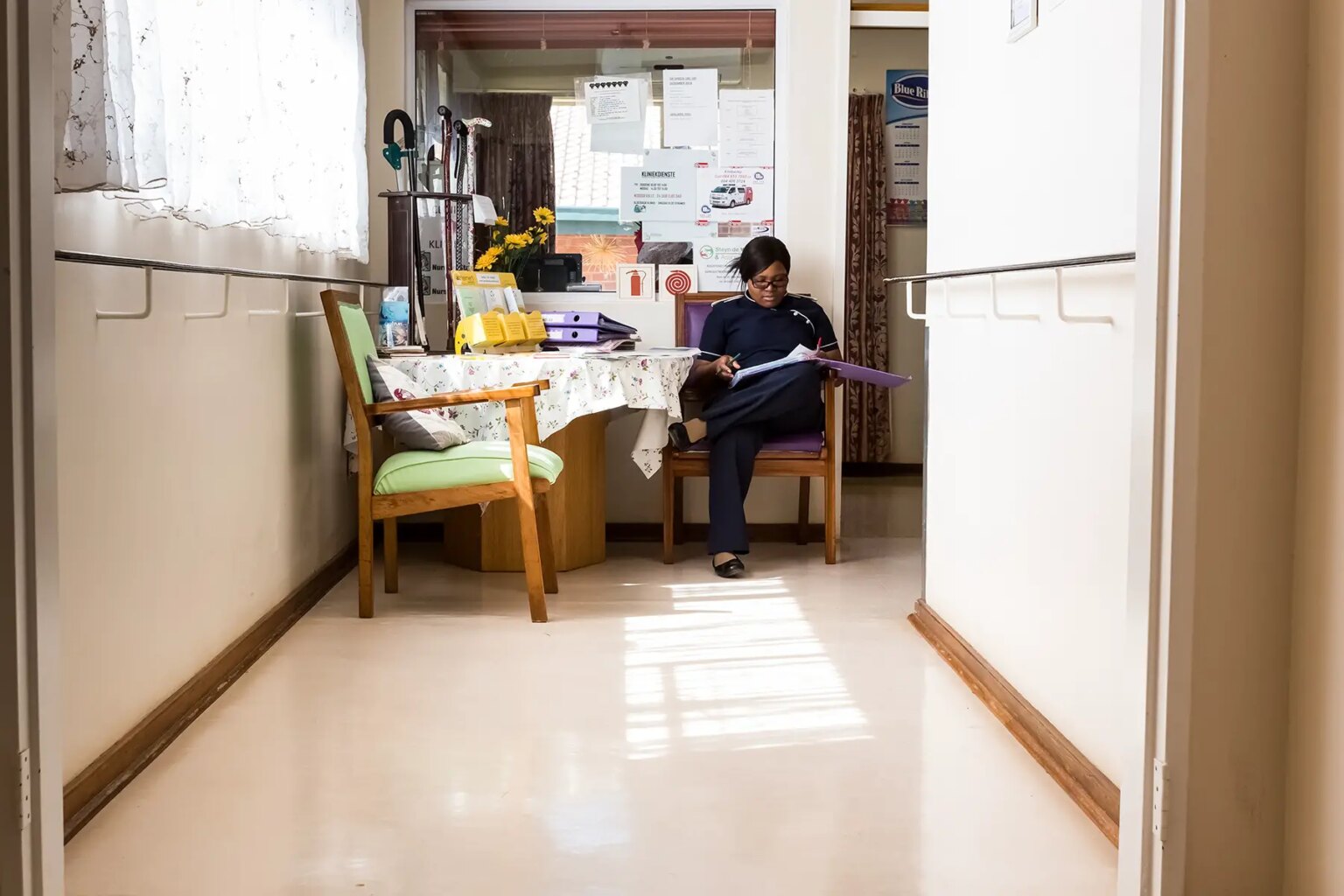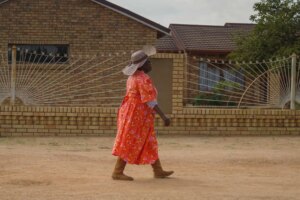This beautiful country has much to offer retirees – a mild climate, favorable exchange rates, and a large English-speaking expat population. These factors make retiring in South Africa a popular choice for expats from all over the world. Undoubtedly, as with any expat destination, there are pros and cons to consider if retiring in South Africa.
Retiring in South Africa
There are plenty of factors that make retiring in South Africa an attractive option for expats. This includes excellent private healthcare, affordable housing, and a high standard of living. Moreover, South Africa has an outdoor lifestyle, world-class restaurants, outstanding wine farms, and a variety of sporting and cultural offerings.
Who can retire in South Africa?
The official retirement age in South Africa is 60. Still, there are no age requirements for anyone moving to South Africa in order to retire. Basically, anyone can retire in South Africa as long they can prove they have the funds and pass the necessary checks.
The South African retirement visa is issued to foreigners of all ages who can afford to retire in South Africa. If you hold this visa, you may live in South Africa on a seasonal or continuous basis. Retirement visa holders are not permitted to work, study, or work while living in South Africa.
Additionally, to qualify for permanent residency on this basis, there are several requirements:
Who can retire in South Africa?
Anyone can retire to South Africa providing they have proof of sufficient earnings and pass the necessary checks. The official retirement age in South Africa is currently 60. However, there are no age requirements on retiring in South Africa. That makes South Africa a good destination for those who wish to take early retirement.
There are two retirement visa options available – either a retired permit or an independent financial person’s permit. For a retired permit, you must prove a guaranteed monthly income of R37,000 if you’re applying for permanent residence; this increases to R444,000 per year if applying for temporary residence. For an independent financial person’s permit, you must have a net worth of R12 million as well as make a one-off payment of R120,000.
As of 2014, spouses or long-term (minimum 2 years) partners and minor dependent children can also receive visas without proof of additional funds.
In addition to these financial requirements, applicants must present a valid passport, medical and radiological reports, and a police clearance certificate.
Visa applications are possible either in the applicant’s home country or while in South Africa. There are complications with applying for a retirement visa if you are in South Africa on a standard 90-day visa.
For information on applying for residence permits in South Africa, see here. If you’re planning on applying for a South African retirement visa in your home country, contact a South African High Commission.
Pensions in South Africa
There is no universal state South African pension. Instead, there is a means-tested grant for older persons funded through taxation that can be made to any citizen or permanent resident aged 60 or above who meets the requirements. The South African Social Security Agency (SASSA) pays this pension.
Those retiring to South Africa are unlikely to be eligible for the SASSA grant as the earnings threshold is well below the amount needed to gain a retired person’s permit. The only other pensions available are occupational and private pensions.
Read even more information in our guide on South African pensions.
International pensions
South Africa doesn’t have a reciprocal social security agreement with any country other than the Netherlands. As the South African pension isn’t contribution-based, this isn’t too much of an issue.
It is possible to live in South Africa on an overseas or international pension that has been transferred. This is the route that most expats choose to take. With private pensions, it is possible to use schemes such as the Qualifying Recognised Overseas Pension Scheme (QROPS) in the UK, through which you can transfer private funds to a recognized South African provider without incurring charges.
The South African government doesn’t impose any tax on overseas pension schemes. However, you must check how your payments from state pensions overseas might be affected. For example, you may be entitled to only a flat-rate pension that doesn’t rise annually with inflation rates back home.
It is possible to retire to South Africa and claim a UK state pension. More information available here.
Retirement planning South Africa: Applicable taxes
South Africa operates on a residency-based taxation system, meaning that residents pay tax on their worldwide incomes. Residents are those with citizenship or residence permits, but you’re also considered a resident for tax purposes if you have been living in South Africa for more than 91 days in total in each of the last five tax years and at least 915 days in total across those five years.
Recent changes to South African tax laws mean that all homeowners in the country must now be tax registered (11). Income taxes are progressively set, starting at 18% for income below R188,000 per annum to 41% for income about R701,300 per annum. Capital gains tax rates are, in fact, fairly low; they sit at 40% of any net gain exceeding R40,000.
However, there is no tax on overseas pensions in South Africa. Those retiring to South Africa who are receiving a South African pension, you will be liable to pay tax on annual earnings above R114,800 and at least 18% tax on lump-sum payments above R500,000.
South Africa has tax treaties with Australia, Japan, the United Kingdom, the United States, Thailand, and Sweden. These treaties have been set up to help ensure that individuals moving from one country to another don’t get double taxed on income derived from their home country. More information on tax issues for those moving to South Africa from the UK available here.
Healthcare
Healthcare in South Africa consists of both public and private systems. The public healthcare available covers approximately 80% of the population, but has consistent budgetary issues. Those with money to do so will usually choose to go private. It is advisable to look into health insurance options before retiring to South Africa. There are a variety of South African medical aid schemes available that offer everything from full medical coverage to small hospital plans. A comparison of some of the South African medical aid schemes, both good and bad, is available here.
The public system uses a Uniform Patient Fee Schedule (UPFS), which charges patients either full or partial costs, or offers a fully subsidized option, depending on the ability to pay. The Department of Health in South Africa is responsible for public healthcare and oversees more than 400 public hospitals in South Africa.
Illnesses that you will need to be vaccinated against in South Africa are cholera, hepatitis, rabies, and typhoid. You will need to ensure that these vaccinations are up-to-date before retiring to South Africa.
Read our guide on health insurance in South Africa for more information.
Inheritance implications
The South African government levies an estate duty on inheritance in South Africa. It is payable on all estates with a net worth in excess of R3.5 million, at a rate of 20% of the value above this amount. Those who retire to South Africa will be liable to pay estate duty on property in the event of their death. Foreign properties are exempt if they were acquired prior to residency or if they were inherited from or donated by someone who isn’t a South African resident.
Property within South Africa is subject to the same estate duty regardless of the owner’s nationality. The South African government has agreements to avoid double death duties with the UK, the US, Botswana, Lesotho, Swaziland, Zimbabwe, and Sweden.
Life for retirees in South Africa
South Africa is a popular retirement destination, largely due to warm climates, picturesque landscapes, and affordable living costs. There are continuing concerns about crime rates, income inequality, unemployment, and pollution that affect the quality of life.
The most popular destinations for those retiring to South Africa are the bigger cities: Cape Town and Johannesburg. Both cities have sizeable expat retiree populations. These cities are particularly popular for retirees from the UK. Other slightly cheaper options that have sizeable expat retirement communities are the Garden District along the southeast coast, Durban, Knysna, Krugersdorp, and Sedgefield. There are a number of retirement villages in South Africa, including retirement villages in Cape Town. There is a list of retirement villages available online.
The good climate means there is a range of outdoor sports and recreational activities that more active retirees can partake in at relatively low costs. Those that want a more relaxing lifestyle upon retiring to South Africa can enjoy the array of beaches, national parks, and vineyards.
South Africa scores high in terms of quality of life, despite the concerns mentioned, while the low cost of living in South Africa and property price/income ratio scores, which make it an appealing choice for those looking for a good mix of attractiveness and affordability. Property prices are around $100,000 to $200,000 in the cities. However, although those retiring to South Africa from Europe or the US may benefit from reduced living costs, there are concerns over the rising cost of living in the country.
Useful contacts
- Advice and support on getting a retirement visa and settling in South Africa
- Legal advice on pension funds
- South African pensioners’ association
- Details on retirement places and villages
- South African expat community website



